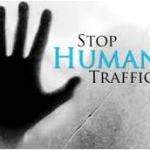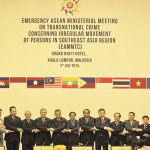
BANGKOK, Sept 15 (Thomson Reuters Foundation) – Mario, a young photographer, is onto a big story – human trafficking in Thailand’s fishing industry – but soon finds himself drawn into a much more personal drama when he decides to help a desperate migrant woman find her missing husband.
The gripping story is at the centre of “Prisana”, a short film launched on Tuesday by the International Organisation for Migration (IOM) to bring the issue of modern slavery in the fishing industry to a young audience.
Mario’s commitment to finding the man, who has been trafficked onto a fishing boat, causes friction with his girlfriend Mai, who wants Mario to spend more time with her.
As Mario sets off on his journey Mai, who has little awareness of human trafficking, slowly begins to understand the scale of the problem in the Asia Pacific region.
An estimated 11.7 million people are victims of forced labour in the region, more than in any other part of the world, and about one million of them work in the fishing industry or other agricultural sectors, according to the International Labour Organization.
“Our hope is that this story will increase understanding of how human trafficking affects families across the region…” said Tara Dermott, programme leader of the IOM X campaign which aims to inspire young people through social media, videos and e-learning to act against human trafficking.
Starring Thai film stars Mario Maurer and Mai Davika Hoorne, with a soundtrack by rock band Slot Machine, the movie shows how unsuspecting men, often poor and little educated, are tricked into working on fishing boats under extremely harsh conditions.
Men enslaved on fishing boats spend an average of 1-1/2 years trapped on boats and some face a working day of up to 20 hours, beatings and having to work even when they are ill, a study by the IOM and the London School of Hygiene and Tropical Medicine said earlier this year.
Dermott said she hoped the film would inspire young people to share what they have learned with others to prevent exploitation and trafficking in their communities.
Along with the 12-minute film the IOM launched a social media campaign with the Twitter hashtag #ICareDoYou to spark public action to stop human trafficking. (Reporting by Thomson Reuters Foundation; Editing by Tim Pearce.; Please credit the Thomson Reuters Foundation, the charitable arm of Thomson Reuters that covers humanitarian news, women’s rights, trafficking, corruption and climate change. Visit www.trust.org)
Source: http://www.reuters.com/article/2015/09/15/thailand-trafficking-movie-idUSL5N11L33R20150915




